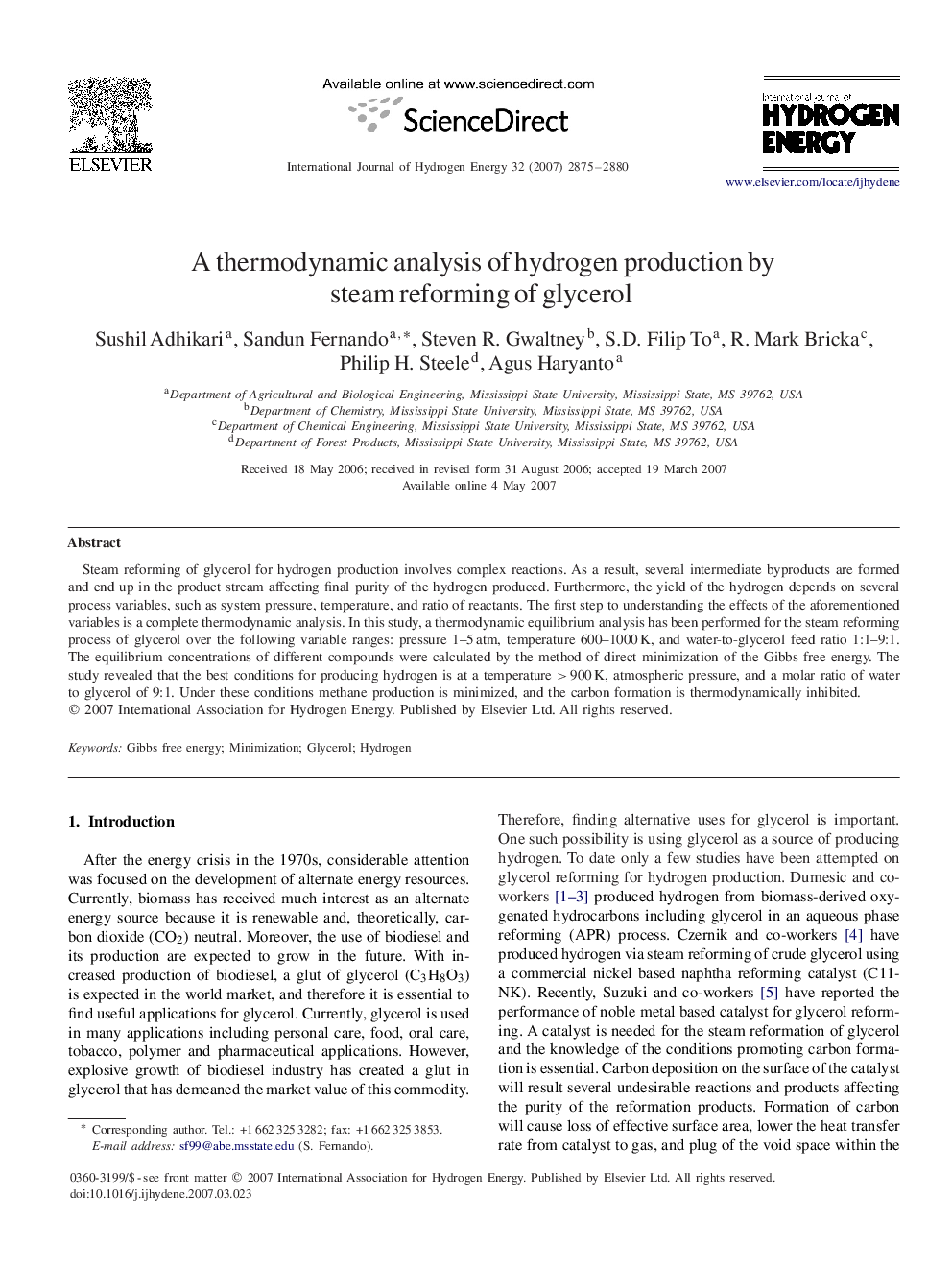| Article ID | Journal | Published Year | Pages | File Type |
|---|---|---|---|---|
| 1280188 | International Journal of Hydrogen Energy | 2007 | 6 Pages |
Steam reforming of glycerol for hydrogen production involves complex reactions. As a result, several intermediate byproducts are formed and end up in the product stream affecting final purity of the hydrogen produced. Furthermore, the yield of the hydrogen depends on several process variables, such as system pressure, temperature, and ratio of reactants. The first step to understanding the effects of the aforementioned variables is a complete thermodynamic analysis. In this study, a thermodynamic equilibrium analysis has been performed for the steam reforming process of glycerol over the following variable ranges: pressure 1–5 atm, temperature 600–1000 K, and water-to-glycerol feed ratio 1:1–9:1. The equilibrium concentrations of different compounds were calculated by the method of direct minimization of the Gibbs free energy. The study revealed that the best conditions for producing hydrogen is at a temperature >900K, atmospheric pressure, and a molar ratio of water to glycerol of 9:1. Under these conditions methane production is minimized, and the carbon formation is thermodynamically inhibited.
